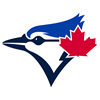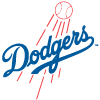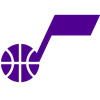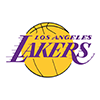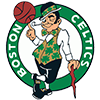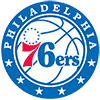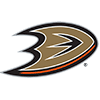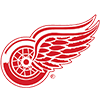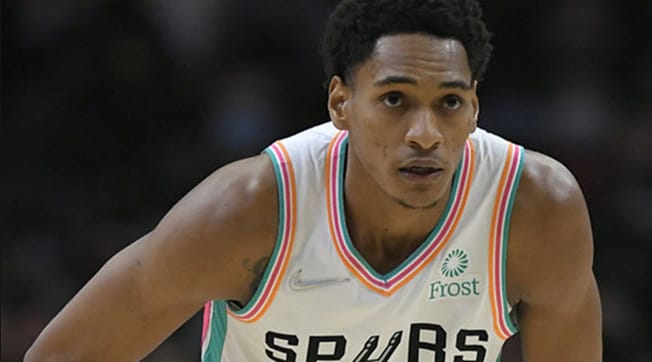On Tuesday, we officially changed our basketball cheat sheet over from preseason projections to manual rankings. From here on in I will be updating that cheat sheet by hand, essentially, moving players up and down the list based upon their performance levels and what I see as their long-term outputs. As a trained scientist with a lot of experience doing statistical analysis, one thing I can say is that making snap judgments on player performance in this way goes against all I've been trained to do. This makes the maintenance of the in-season cheat sheet probably the hardest job that I have at Rotowire, even while it's one of the most necessary. Let me explain.
As a statistical scientist, I've been trained to believe we can gain insight into future performance (i.e. projections or rankings) based upon a large enough body of past performance in similar situations. But past performance and similar situations are essentially conflicting factors. Because one week into the season, the sample size of games played in similar situations (i.e. this season) is way too small for making secure conclusions. As of Wednesday, January 4th, the Yahoo! player rater top-5 features the expected LeBron James and Kevin Durant, but rounding it out are fantasy stalwarts such as James Harden, Ryan Anderson and Kyle Lowry. Now don't get me wrong, I like Harden, Anderson and Lowry as roto producers this year, but in no way would I have them in my top-5.
And the reason
On Tuesday, we officially changed our basketball cheat sheet over from preseason projections to manual rankings. From here on in I will be updating that cheat sheet by hand, essentially, moving players up and down the list based upon their performance levels and what I see as their long-term outputs. As a trained scientist with a lot of experience doing statistical analysis, one thing I can say is that making snap judgments on player performance in this way goes against all I've been trained to do. This makes the maintenance of the in-season cheat sheet probably the hardest job that I have at Rotowire, even while it's one of the most necessary. Let me explain.
As a statistical scientist, I've been trained to believe we can gain insight into future performance (i.e. projections or rankings) based upon a large enough body of past performance in similar situations. But past performance and similar situations are essentially conflicting factors. Because one week into the season, the sample size of games played in similar situations (i.e. this season) is way too small for making secure conclusions. As of Wednesday, January 4th, the Yahoo! player rater top-5 features the expected LeBron James and Kevin Durant, but rounding it out are fantasy stalwarts such as James Harden, Ryan Anderson and Kyle Lowry. Now don't get me wrong, I like Harden, Anderson and Lowry as roto producers this year, but in no way would I have them in my top-5.
And the reason I wouldn't is due to their levels of production in previous years, the very basis for the projections that had been the foundation of the cheat sheet during the preseason. But while previous years stats form a large enough body of data to make predictions, they were compiled under different circumstances. Everything from age, to team dynamics, to contract dynamics, to the Lockout, to many other factors can change from one year to the next. So it's hard to know whether a young player like Harden may not have just found another gear this season which WOULD allow him to remain a top-5 producer for the season.
Therein lays the dilemma.
But here's the thing - fantasy sports move quickly. You don't have time to wait a month or two to make sure that a player under- or over-achieving isn't a fluke. You have to make snap decisions right now about whether to cut Lamar Odom (Y! O-rank No. 67, actual rank No. 589) to pick up Spencer Hawes (Y! O-rank No. 174, actual rank No. 22). You have to decide early whether you think Russell Westbrook (O-rank No. 11, actual rank No. 125 by average) is just in an early funk and will snap out of it, or whether you might want to try to flip him onto someone else now while his value is still near its peak before it becomes clear he's just in for a down year. And because YOU have to make those decisions right now, it's up to US at Rotowire to give you the best information and analysis we can in order for you to make those decisions.
And therein lays a solution.
Because my rankings list, just by definition, will be operating more on the long-term scale than the short term. You generally won't see a player shoot to the top of the rankings based off a hot week or two, because with the two dynamics I laid out above, players just can't move around in the rankings list that rapidly. BUT, if a player is absolutely on fire you are very likely to see me write about him here in the Hoops Lab, or Shannon will write about him in the NBA Barometer, or Eric will address it in the weekly NBA Value Meter. The cheat sheet is one tool that we offer here, but we offer many more as well. And all of those tools, from the cheat sheet to Charlie's Working the Wire column are meant to give you more information from multiple different angles with which to make decisions. Because at the end of the day, the decision about whether to add or drop, who to trade for, or who to trade away will ultimately have to come from you.
Around the League
•Ginobili's broken hand: Just last week I mentioned that Manu Ginobili has a tendency to start off a season like an MVP then wear down, making him a good trade-high candidate early on. Unfortunately, this year his injury came so early that it was difficult to trade him high. The broken bone in his shooting hand will keep Ginobili out for 6-8 weeks, but the bright side is that if he returns healthy in March there's a reasonable chance that you get MVP-level Ginobili in time for your fantasy playoffs. In the meantime, his injury opens things up for James Anderson (replaced Ginobili in the starting lineup) or perhaps Gary Neal (very effective from long range as a rookie) to step in for him. Look for Tony Parker and Tim Duncan to shoulder a larger bit of the offensive load as well.
•Randolph's knee:Zach Randolph tore the MCL in his right knee and is expected to be out for 6-8 weeks. This is the same knee on which Randolph had microfracture surgery in 2005, making the injury even more concerning. As I pointed out last week, the Grizzlies' offense had already become more perimeter-based with the return of Rudy Gay. Expect Gay to get even more shots while Randolph is down, with Mike Conley and perhaps Marc Gasol also having more offensive responsibility. This injury also led directly to a...
•Three-way trade: the Grizzlies traded Xavier Henry to the Hornets in a three-team deal that lands Marreese Speights in Memphis. Speights generated some buzz a few years ago as a rookie, but never earned a large enough spot in the 76ers rotation to warrant fantasy interest. He had not played at all this season, but presumably should find some minutes in the Grizzlies rotation moving forward. Henry has torn ligaments in his right ankle, and seems to be more of a developmental project for the Hornets.
•Bynum going berserk:Andrew Bynum missed the first few games of the season due to a suspension, but since returning he has been doing his best Dwight Howard impersonation by averaging 23 points, 17 rebounds and two blocks per game. In my pre-season projections I had Pau Gasol as a top-10 player and Bynum down in the 70s, which is partially attributable to Bynum's injury history, but his blazing start has Bynum shooting up my rankings. The talent has always been there, so with another 20/20 game or so I could really be convinced Bynum may be ready for a franchise-level breakout this season.
•The only thing that can derail a talent as strong as DeMarcus Cousins is himself. Attitude was always his question mark: I tweeted (@ProfessorDrz) this over the weekend, after Cousins was benched by the Kings on New Years Day for reportedly demanding a trade. Cousins returned to the court on Tuesday, but scored only four points and missed double-digit boards for the first time this season while playing only 22 minutes. Cousins' talent is undeniable, but lingering questions about his attitude have dogged him since before he was drafted. No matter how talented he is, if his attitude keeps him off the court he can't help your team.
•Wade's lingering foot soreness:Dwyane Wade missed Wednesday night's game due to lingering foot soreness. He attempted to go in shootaround, which is a sign that perhaps it isn't serious, but any potential injury to the feet of such an explosive player is worth keeping an eye on.
•Amare's early ankle soreness would worry me as a fantasy owner, especially with his knees and back already suspect: Stoudemire returned to the court on Wednesday, but as an owner his start makes me uneasy. Stoudemire is now battling with Carmelo Anthony for shots and with Tyson Chandler for rebounds, and he has injury concerns in his back, his knees, and now his ankle. When you factor in his slow-start production-wise, my tendency would be to try to trade Stoudemire if you can get draft-day value for him.
•Rookie report: I read a nice article by Sebastian Pruiti about how several of the best rookies have performed out of the gate this season, and I recommend it. The highlight of the article is his analysis of Ricky Rubio and Norris Cole, both of whom I am bullish on this season. Pruiti points out that thus far the Timberwolves have an offensive rating of 103.1 with Rubio on the court and 92.6 with him off the court, which means that he is doing a good job running the team and thus should be in line for increased minutes. Similarly, he uses Synergy Sports data to show that Cole has been scoring in a variety of ways, split pretty evenly among transition buckets, pick-and-roll, and spot-up shots.
•Is Spencer Hawes' hot start real? Was Boris Diaw's a fluke? And what about Marshon Brooks? Inquiring minds want to know: In one of the leagues I'm in that does weekly auction-style waivers with a total FA budget of $100 for the season, Hawes went for $57 and Diaw went for $39. Both are off to fast starts, but of the two I tend to believe Hawes' more. Hawes has legitimate center size, a definite starter's role on a big-man starved team, and has flirted with double-doubles with more than a block per game in the past. His numbers early on are better than he's ever achieved, but he is still only 23 years old, and he's publicly admitted he's also playing for a new contract. Diaw, on the other hand, was averaging an unsustainable 13.5 rebounds (average of 5.1 rpg last three seasons) and 8.5 assists (average of 4.1 apg for last three seasons) through the first two games and has already started coming back to earth. He is rosterable in most leagues due to his position versatility and potential for assists from a center, but he's not the player his fast start suggested.
And then there was Marshon Brooks. Brooks is a ball-dominant scorer, even as a rookie, and is playing on a Nets team with major injury issues. As such, Brooks is being given the opportunity to shoot early and often. Brooks has taken double-digit shots in five of the last six games, and has parlayed that into averages of 18.6 ppg with 1.2 made treys in those five games. With the lack of talent right now in New Jersey, there's no reason to expect him to slow down any time soon.
New Additions
•Jonas Jerebko (44% owned in Yahoo leagues): Jerebko has returned after last year's season-ending injury, and seems to have picked right up where he left off in his promising rookie season. Jerebko is coming off of back-to-back double-digit rebound efforts, including a 20/12 game, and has assumed a major role for the Pistons with almost 35 minutes played per game.
•Richard Jefferson (41% owned): Jefferson remade himself last season into a 3-point marksman in San Antonio, and he has continued to knock down the long ball this season with 2.6 treys made per game through his first five outings. Jefferson could also be another that takes on a larger scoring role with Manu Ginobili out.
•Markieff Morris (10% owned): Morris is another rookie off to a good start, as he has already shown good chemistry with Steve Nash and is coming off of consecutive double-digit scoring efforts with solid boards. Morris has also shown the ability to make the 3-pointer, with more than one trey per game thus far.
•Nate Robinson (2% owned): Robinson has signed with the Warriors, and is expected to be a sixth man scoring spark plug behind Stephen Curry and Monta Ellis. The Warriors run a guard-centric offense, and Robinson has shown in the past that he can thrive in that type of system for a team without major postseason aspirations.
•Greg Stiesma (0% owned): Earlier this week after watching a Celtics game, I tweeted that Greg Stiesma plays like Chris Andersen with jump shot. Stiesma entered Wednesday among the leaders in the NBA in blocks despite playing only 17 minutes per game, and when he spot-started to replace Jermaine O'Neal he scored 13 points (5-for-7 FG, 3-for-4 FT) on mainly jump shots while adding seven boards and two blocks. Stiesma doesn't play enough for consideration in most leagues at present, but considering the age and fragility of the Celtics starting front court, Stiesma is worth keeping an eye on moving forward.
Best Players in NBA history
Last week I introduced this section of the Lab, which spun off of a long-term project to rank the Top 100 players in NBA history. I started with Dirk Nowitzki, and gave some facts about him that make him worthy to be ranked among the best players in history. And in the comments of the article I had a nice discussion with a reader named jestomjaz about where Bill Russell and Kareem Abdul-Jabbar were slotted in the rankings. Abdul-Jabbar's case is an easy one to make based off the box scores and the accolades, so I'll leave him for another day. Instead, let's talk today about the basketball greatness of William Felton Russell.
Russell is most commonly defined in basketball history by two things: his rivalry with Wilt Chamberlain, and his amazing proclivity to win championships. The general narrative with Russell for many is that Chamberlain (with his video game box score numbers) was the better individual player, but that Russell played on better teams and was thus able to be the better winner. When judging how good a player is, one of my biggest pet peeves is the tendency to consider a player better just because he happened to be on teams that won - team talent and coaching aren't in a player's control, so therefore team winning alone can't be a fair gauge for how good an individual player is. So if all of Russell's case was built on the Celtics winning titles, that case wouldn't impress me very much.
On the other hand, a player's contribution to team success is in my opinion the most important aspect of judging his level. And when we start to quantify exactly WHY those Celtics teams won, and correlate that with the presence and absence of Russell, we get a very clear picture of just how huge of an individual impact Russell was having on every game with his completely ground-breaking defensive abilities which ultimately played a huge part in why his teams always won. So to that end, here are some facts to chew on for Bill Russell:
1. In 1956, the year before Russell arrived, the Celtics fielded one of the worst defenses in the league, about 1.5 points BELOW league average. In 1970, the year that Russell left, the Celtics defense again fell back to the middle of the pack, right at league average.
2. From Russell's arrival in 1957 until his departure after 1969, the Celtics were No. 1 in the league in team defense in 12 of 13 seasons (No. 2 in the other season). Not only were they the best, but they were by FAR the best, including a five year stretch from 1961 - 1965 in which they were on average about 10 points better than league average and more than 6 points better than the second best defense. Check out this link for an excellent breakdown of how those Russell-led Celtics defenses compared with the rest of the league, and with NBA history.
3. The dominance of the Celtics' defensive unit trumped anything that anyone's offense was doing. Take, for example, 1964. The Celtics' defensive rating (83 points allowed/100 possessions) was 11.5 points better than league average and 18.4 points better than the last place Knicks (101.4 points/allowed).
Meanwhile, on offense the top-ranked Royals (99.2 points/100 posessions) were only 9.9 points better than the last place Celtics (89.3 points/100 possessions). This highlights a second point, that the Russell Celtics were winning championships every year despite very often sporting one of the lowest ranked team offensive ratings in the league.
4. When factoring in that Russell's defensive impact was so far beyond anything anyone was doing on offense, it's easier to understand why Russell won so many championships at every level. From 1955 - 1969, Russell-led teams won 14 championships (11 NBA titles, an Olympic Gold Medal, and back-to-back NCAA titles which included a then-record 55 consecutive wins).
Keeping up with the Professor
If you're interested in my takes throughout the week, you can follow me on Twitter @ProfessorDrz. Also, don't forget that you can catch me on the radio on Rotowire Fantasy Sports Today with Chris Liss and Jeff Erickson on XM 87, Sirius 210.








